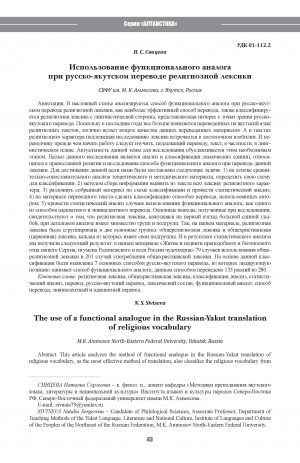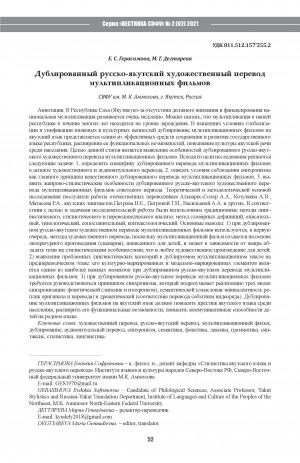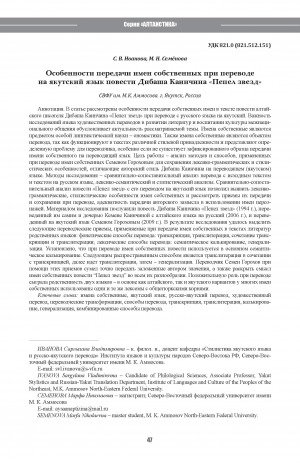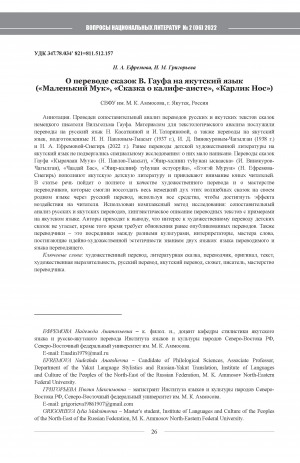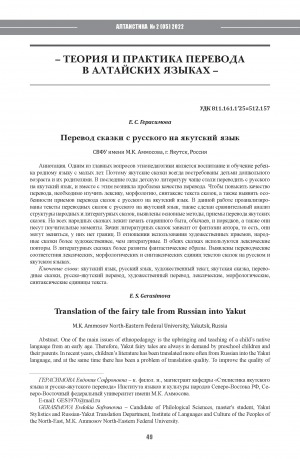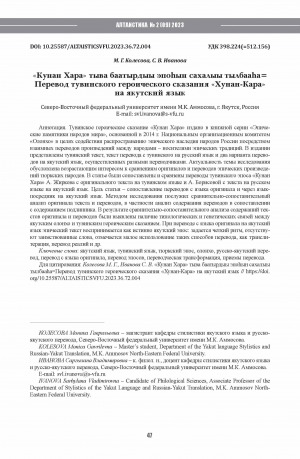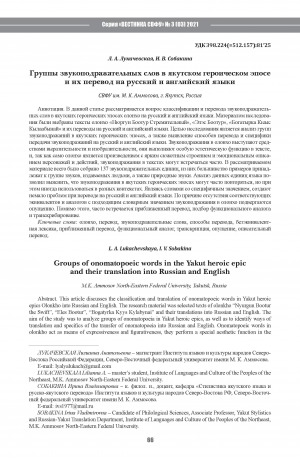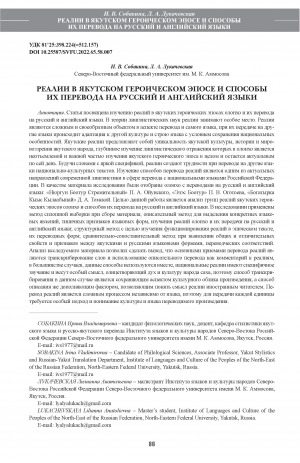
Вольность как одна из тенденций художественного перевода (на примере перевода рассказа "Последнее свидание" Н. Габышева на русский язык) = Literary license as one of the trends in fiction translation (based on the translation of “The Last Tryst” storyby N. Gabyshev into Russian)
Статья в журнале
Русский
821.512.157Га6ышев.03=161.1
10.25587/2782-6635-2024-2-73-80
художественный перевод ; вольный перевод; транспонирование смыслов; интерпретация; трансляция; адекватный перевод; адаптационная позиция; literary translation; literary license; transposition of meanings; interpretation; rendition; appropriate translation; literary adaptation
Within the realm of Russian ction translation, contrasting approaches of literal translation and literary license have surfaced. This article delves into the characteristics of literary license within ction translation, elucidating its criteria through an examination of "The Last Tryst" story by N. Gabyshev and its rendition into Russian as illustrative instances. The author of the article asserts that recognizing the asymmetry inherent in literary license is crucial for achieving adequacy in conveying the author's ideas and ctional universe. The Russian translation displays disparities, inaccuracies, and falls short of fully encapsulating the author's style, resulting in a diminished emotional impact and some discordance. Nevertheless, it is essential to acknowledge that literary license translation is inherently interpretative-a creative endeavor characterized by asymmetry and license. The quality and adequacy of a translation are contingent upon the translator's depth of exploration into the author's creative universe, comprehension of their stylistic nuances, and awareness of the author's underlying intentions.
Титов, Я. Н. Вольность как одна из тенденций художественного перевода (на примере перевода рассказа "Последнее свидание" Н. Габышева на русский язык) / Я. Н. Титов // Вестник Северо-Восточного федерального университета им. М. К. Аммосова. Серия "Вопросы национальных литератур". - 2024, N 2 (14). - С. 73-80. - DOI: 10.25587/2782-6635-2024-2-73-80
DOI: 10.25587/2782-6635-2024-2-73-80
- Языкознание. Филология. Художественная литература > Литература. Литературоведение > Теория литературы. Изучение литературы. Литературная техника > Художественная литература на отдельных языках,
- НАУКА ЯКУТИИ > ЯЗЫКОЗНАНИЕ. ФИЛОЛОГИЯ. ЛИТЕРАТУРОВЕДЕНИЕ. ХУДОЖЕСТВЕННАЯ ЛИТЕРАТУРА > Литература. Литературоведение.
Войдите в систему, чтобы открыть документ
